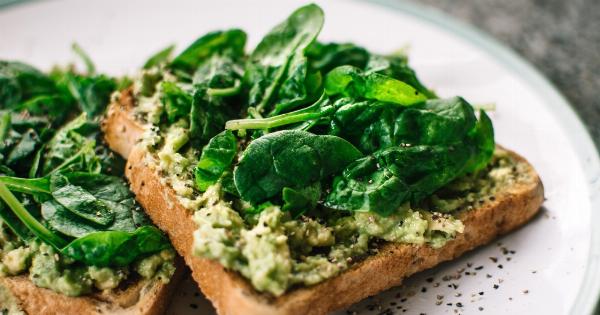Chronic diseases are a growing concern around the world.
According to the World Health Organization (WHO), chronic diseases, such as heart disease, stroke, cancer, diabetes, and respiratory diseases, are responsible for approximately 70% of all deaths worldwide. Some of the major contributors to chronic diseases include poor diets, physical inactivity, and unhealthy lifestyle choices. However, there is a simple and effective way to fight against these diseases, and that is through homemade food.
Home Cooked Meals and Chronic Diseases
Homemade food has always been considered healthier than processed and pre-packaged foods, but when it comes to combating chronic diseases, it is even more crucial.
A diet filled with wholesome, nutritious, and fresh ingredients can lead to significant health benefits, including the prevention of chronic diseases. Here are some ways in which homemade food can help combat chronic diseases:.
1. Control Over Ingredients
When preparing meals at home, you have complete control over the ingredients used. You can choose fresh and wholesome ingredients and avoid any processed or pre-packaged foods.
This way, you can limit the intake of added sugars, trans and saturated fats, and processed ingredients that have been linked to chronic diseases such as heart disease, diabetes, and cancer.
2. Nutrient Density
Homemade meals are typically more nutrient-dense than pre-packaged and processed foods.
Nutrient-dense foods provide the body with essential vitamins, minerals, fiber, and other nutrients that are vital for maintaining good health and preventing chronic diseases. By cooking at home, you can ensure you are getting the essential nutrients your body needs to function optimally.
3. Portion Control
Portion control is also an important factor in preventing chronic diseases. Many pre-packaged and processed foods provide large servings that contain too many calories, leading to weight gain and an increased risk of chronic diseases.
By cooking at home, you can control the portions you eat and ensure you are consuming the right amount of calories for your body’s needs.
4. Reducing Sodium Intake
Sodium is an essential mineral for our bodies, but when consumed in excess, it can lead to a host of health problems such as high blood pressure and heart disease.
Many pre-packaged and processed foods are extremely high in sodium, making it challenging to manage sodium intake. However, when cooking at home, you can control how much sodium is used, which can help reduce sodium intake and prevent chronic diseases.
5. Healthier Cooking Methods
When cooking at home, you can opt for healthier cooking methods that are better for your health.
For example, you can sauté or roast vegetables instead of frying them, which can help retain their nutrients and reduce the amount of unhealthy fats consumed. This way, you can ensure the food you eat is prepared in a way that supports your overall health and well-being, reducing the risk of chronic diseases.
6. Experiment with Healthy Foods
Cooking at home gives you the freedom to experiment with healthy foods and ingredients that you may not have tried before.
By introducing new and healthy foods into your diet, you can benefit from their unique health benefits and reduce the risk of chronic diseases.
Conclusion
When it comes to preventing chronic diseases, there is no one-size-fits-all solution. However, one of the most effective ways to combat chronic diseases is by cooking at home.
Homemade food is packed with nutrients, free from harmful additives, and supports overall health and well-being. By incorporating more homemade meals into your diet, you can enjoy the benefits of optimal nutrition and reduce the risk of chronic diseases.































